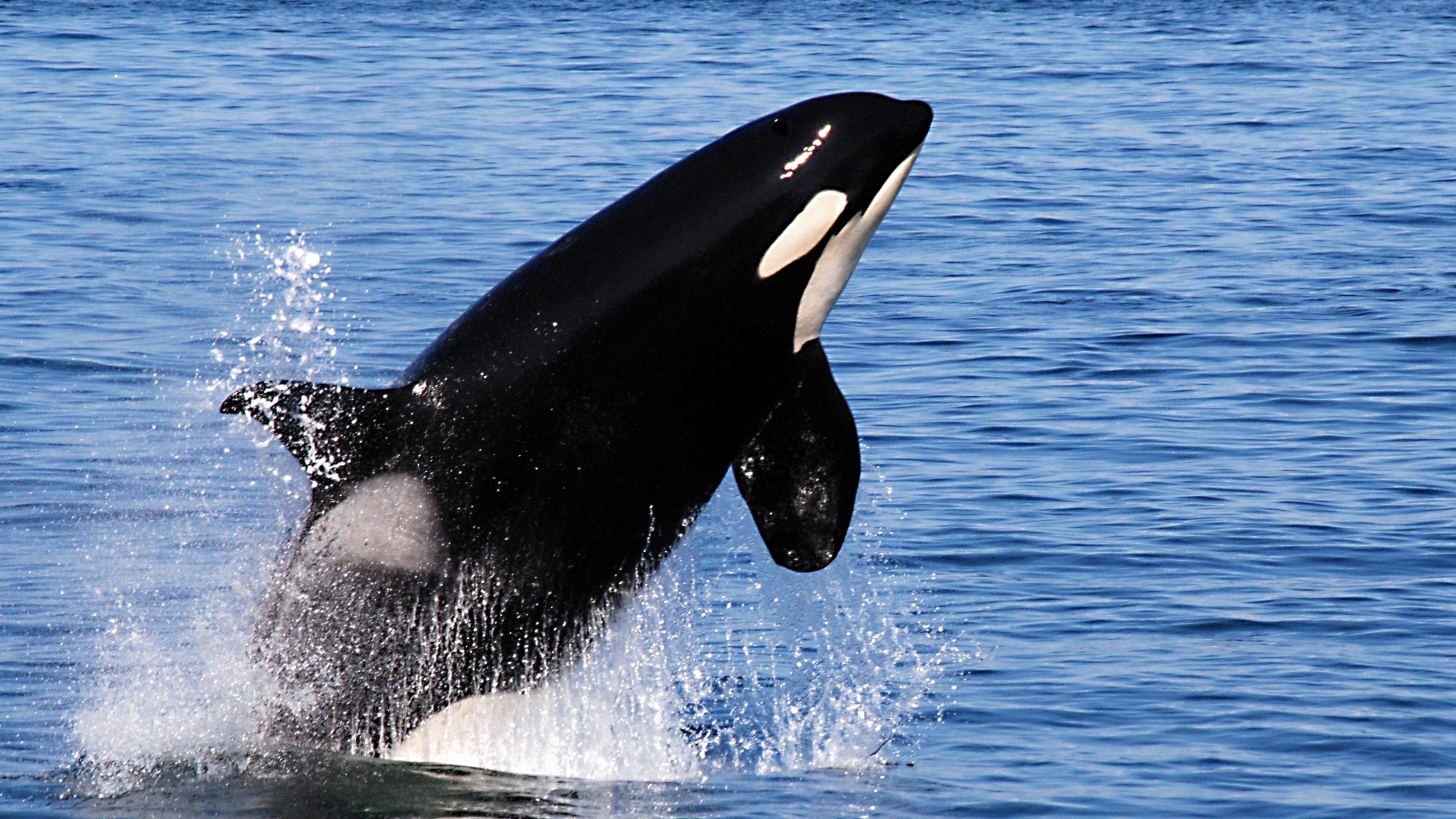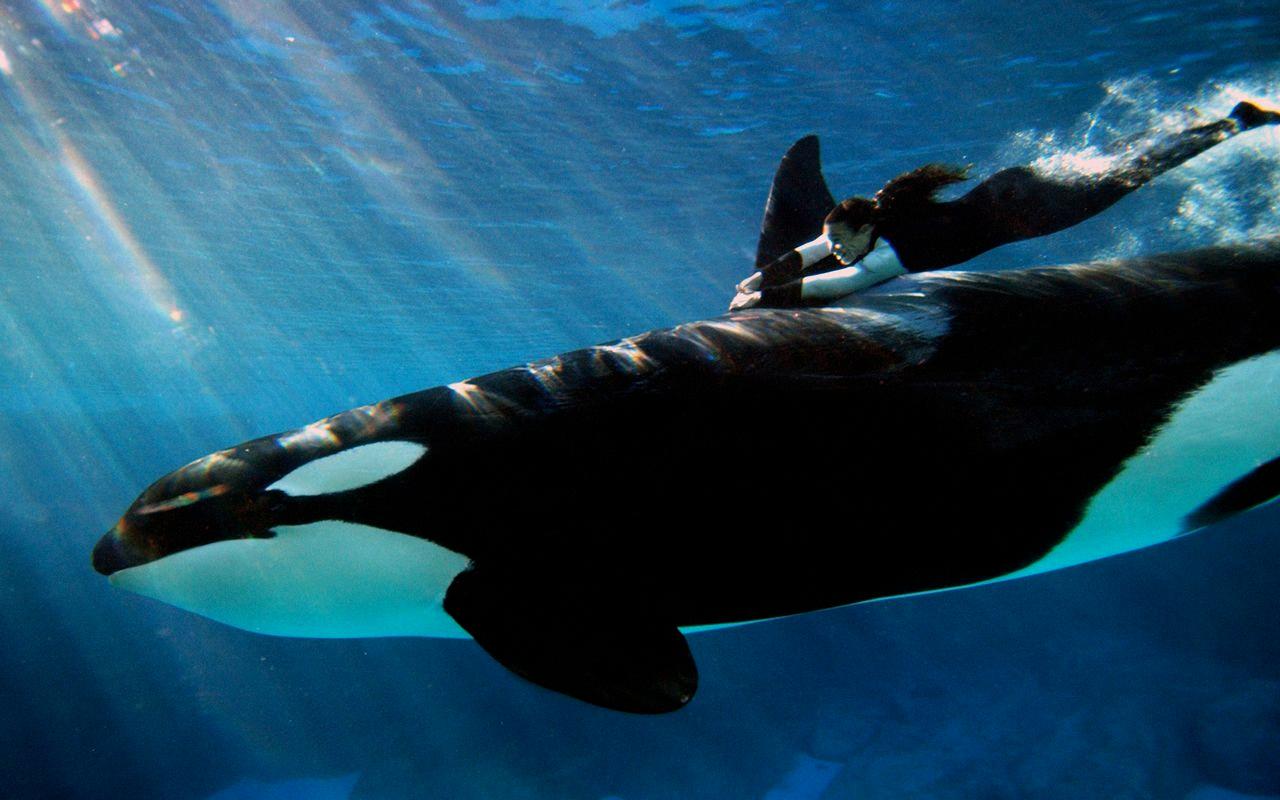Killer whales, also known as orcas, are one of the most fascinating marine mammals on the planet. These intelligent creatures are found in oceans all over the world and are known for their stunning black and white markings, as well as their impressive hunting skills. But, do humans eat killer whales?
Firstly, it’s important to note that killer whales are not actually whales, but rather the largest species of dolphin. They are apex predators, meaning they are at the top of the food chain in their ecosystem. Killer whales are known to hunt and eat a variety of prey, including fish, seals, sea lions, and even oher whales. They are highly adaptable and have been observed using a variety of hunting techniques, including cooperative hunting in groups called pods.
While killer whales are known to be powerful hunters, they are not typically hunted by humans for food. This is due to a number of factors, including their protected status in many countries and the fact that their meat is not considered a delicacy. In fact, in many places, it is illegal to hunt or kill killer whales.
However, there are a few places in the world where killer whales are still hunted for food. In some indigenous communities in the Arctic, such as the Inuit and the Yupik, whale hunting is an important cultural tradition. In these communities, killer whales are sometimes hunted for their meat, blubber, and other parts, which are used for food, clothing, and other purposes. It’s worth noting, though, that this type of hunting is heavily regulated and is only allowed in certain areas and under specific circumstances.
While killer whales are known to be formidable predators and are sometimes hunted for food in certain indigenous communities, they are not typically eaten by humans. Instead, these majestic creatures are best appreciated from a distance, as they play an important role in the marine ecosystem and are a symbol of the beauty and diversity of our oceans.
The Taste of Killer Whale Meat
Killer whale meat, also called orca meat, is not commonly consumed by humans due to the species being protected in many countries. However, there have been reports of indigenous people in some regions, such as Norway and Russia, consuming the meat. According to those who have tried it, killer whale meat has a similar taste to other marine mammals such as seal or walrus, with a strong, fishy flavor and a gamy taste. The meat is often described as tough and chewy, with a texture similar to beef jerky. It is typically served raw or cooked with minimal seasoning, as the flavor of the meat itself is qute strong. It’s important to note that consuming killer whale meat is controversial and can be dangerous due to potential health risks associated with the consumption of marine mammals.

Source: pbs.org
The Friendly Nature of Orcas Towards Humans
While orcas are known for their intelligence and curious nature, it is important to note that they are wild animals and should be treated with caution and respect. While there have been reports of orcas approaching and interacting with humans in the wild, it is not accurate to say that they are universally friendly to humans.
That being said, there are a few reasons why orcas may approach humans. One theory is that they are simply curious and interested in investigating new objects and creatures in their environment. In some cases, orcas may also be attracted to boats or other man-made objects due to the noise and vibrations they produce, which can be similar to the sounds made by some of their prey.
Another posible explanation is that orcas have learned to associate humans with food, either through interactions with humans who have fed them or through scavenging from fishing boats. While this can lead to dangerous situations for both humans and orcas, it is important to remember that these are still wild animals and should never be intentionally fed or approached too closely.
Ultimately, the relationship between orcas and humans is complex and multifaceted, and there is still much to learn about these fascinating creatures and their behavior in the wild.
Why Eating Whale Meat Is Not Advisable
Whale meat is not considered safe for human consumption due to the high level of toxic pollutants that accumulate in the animal’s tissues. These pollutants include heavy metals such as mercury, lead, and cadmium, as well as dangerous chemicals like PCBs and dioxins. These toxins are known to cause serious health problems in humans, such as cancer, neurological damage, and reproductive problems. Even small amounts of thee contaminants can have harmful effects, and since whales are at the top of the food chain, they are particularly vulnerable to bioaccumulation. Therefore, it is not recommended to consume whale meat due to the potential health risks associated with the consumption of these toxic substances.
The Edibility of Dolphins
Yes, dolphins are edible and their meat is consumed in some countries such as Japan and Peru. However, it is important to note that consuming dolphin meat is a controversial issue as dolphins are intelligent and often considered to be sentient beings. In addition, the consumption of dolphin meat may pose health risks as it can be contaminated with high levels of mercury and other pollutants. Therefore, it is recommended to avoid consuming dolphin meat and opt for other sources of protein.
The Country with the Highest Consumption of Whale Meat
There are only a few countries in the world that still hunt whales for consumption, and among them, Japan, Norway, and Iceland are the biggest consumers of whale meat. However, it is worth noting that the consumption of whale meat has been on the decline in recent years due to growing concerns about the sustainability of whale hunting and the ethical treatment of these marine mammals. In Japan, where whale meat has been a traditional delicacy for centuries, the demand has been declining steadily, and younger generations have shown less interest in consuming it. In Iceland, the majority of whale meat is consumed by tourists, and the locals tend to prefer other types of meat. In Norway, the whaling industry is government subsidized, and the government actively encourages whale meat consumption to keep demand matching the supply. However, the amount of whale meat consumed in Norway is relatively small, and it is not a staple food in the Norwegian diet. Overall, wile there are still countries that consume whale meat, the trend is moving towards a decline in demand, and the future of the whaling industry remains uncertain.

Source: pinterest.com
Swimming with Orcas: Is it Possible?
Yes, it is possible to swim with orcas, but it is important to exercise caution and follow safety guidelines. Orcas are intelligent and social animals, and some people have had positive experiences swimming with them in the wild. However, it is important to remember that they are still wild animals and can be unpredictable. It is recommended to go with experienced guides who understand the behavior of orcas and can ensure your safety. Additionally, it is important to respect the animals and teir habitat, and to avoid disturbing them or interfering with their natural behavior. Overall, with the right precautions and guidance, swimming with orcas can be a memorable and rewarding experience.
Can Humans Bond With Orcas?
Yes, orcas can bond with humans. Orcas are highly social animals that are known to form strong bonds with members of their pod as well as with humans. In fact, orcas have been observed interacting with humans in captivity and in the wild, and they have been known to display affectionate behavior towrds humans such as nuzzling and vocalizing.
Research has also shown that humans and orcas can exhibit similar behavior, body language, and vocalizations, suggesting that they may share emotional states. This has led some researchers to speculate that orcas and humans may be able to communicate with each other on a deeper level than previously thought.
However, it’s important to note that interacting with orcas in the wild can be dangerous and should be done with caution. Despite their friendly behavior towards humans, orcas are still wild animals and should be treated with respect and caution.
Predators of Orcas
As apex predators, orcas have no natural predators in the wild. However, they can sometimes fall victim to human activities such as hunting, pollution, and habitat destruction. In addition, orcas may face competition for food from other large predators, such as great white sharks and sperm whales. However, it’s important to note that these interactions are rare and orcas are generally considered to be the top predator in their ecosystem. Overall, orcas are incredibly powerful and intelligent animals that play a vital role in maintaining the balance of marine ecosystems.
Conclusion
In conclusion, killer whales, or orcas, are fascinating and intelligent creatures that inhabit the world’s oceans. Known for their striking black-and-white coloring and impressive size, these marine mammals have a complex social structure and are highly skilled hunters. While they are known to prey on a variety of sea creatures, including fish, seals, and even other whales, they do not typically attack humans. Their diet and behavior vary depending on their location and the availability of food, but they are often seen traveling in pods and working together to catch their prey. While there is still much to discover and learn about these magnificent animals, their role in the marine ecosystem is vital, and their conservation is essential to ensure a healthy ocean environment.
